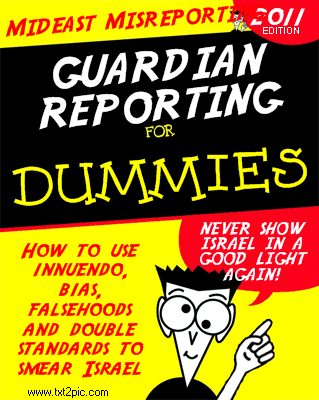A Guardian report by their Jerusalem correspondent Oliver Holmes on April 12th included the following strap line:
This description of the Israeli prime minister also appeared in the text of the article:
Under his leadership, 13 years in total, Israel’s entire political arena has become more overtly hardline, in line with his ultranationalist, us-versus-them, force-over-compromise style.
The claim Netanyahu is an “ultranationalist” is not supported with a source, and doesn’t even use the kind of qualifying language (e.g., “who some have called an ultranationalist”, or some such wording) typically used to avoid running afoul of the Editors’ Code which warns against blurring fact with opinion).
Moreover, whilst it’s difficult to find a widely accepted definition of the word (outside of the rather vague dictionary definition, which describes it as radical loyalty to one’s nation), it’s often used in the media to describe an extreme version of nationalism that leans towards racism and even fascism. For instance, it’s been used – by media outlets including the Guardian – to characterise Britain First— a racist right-wing party which called to “introduce a comprehensive ban on the religion of ‘Islam’ within the UK”.
Interestingly, in an earlier Guardian article, the same reporter described the Jewish Power party (Otzma Yehudit) as “ultranationalist”- which seems fair based on the fact that they are successors to Meir Kahane, a U.S.-born rabbi whose Kach party was banned in Israel for racism and advocating expelling Palestinians (and even Arab Israeli citizens). Similarly, whilst many other news outlets also described the Jewish Power party in those terms, we were unable to find any other mainstream publication that referred to the Israeli leader in this way.
Though Netanyahu faced widespread criticism – both at home and abroad – for facilitating a deal between Jewish Power and another far-right faction prior to the election, we’ve seen no serious commentary suggesting that he was suddenly in ideological alignment with this extreme right party, or that he was motivated by anything other cynical political interests.
Further, it’s instructive how the left-leaning Israel Democracy Institute describes the term “ultra-nationalist” in the Israeli context:
The ultra-nationalists maintain that if Israel is a “Jewish state,” it is permissible—and even necessary—to exclude non-Jewish citizens systematically from the private and public spheres. Loyalty tests for Arabs, ongoing discrimination against Arabs in resource distribution and in government attention to their needs…
Even Netanyahu’s critics would have a hard time arguing that he could be reasonably placed into such an ideological camp.
However, this isn’t really about Benjamin Netanyahu at all. It’s about the Guardian’s selective use of highly loaded ideological terms to demonise Israel – terms which of course could more fairly be applied to even ‘moderate‘ Palestinian leaders if an objective standard was applied. Even “right-wing” or “far-right” – which, in Guardian speak, are typically used as terms of abuse, rather than objective political descriptions – are exclusively employed to describe Israeli leaders, never Palestinians, despite polls showing widespread Palestinian support for many views (such as the imposition of Sharia law) representing the extreme right.
Much like the apartheid smear, the Guardian’s use of the word ultranationalist in this context serves one major purpose: to reinforce the Corbyn-style left narrative which suggests that Zionism is illegitimate and that Israel – the most progressive state in the Mid-East – is not only moving ‘dangerously right’, but arguably lurching towards fascism and, thus, represents a state beyond the pale.
Related Articles
- NY Times suggests “terrorist” label for Israel (CAMERA)
- BBC Arabic host in west Jerusalem claims to be in ‘Palestine’ (BBC Watch)
- Guardian to Israeli voters: trust us with your security (UK Media Watch)






